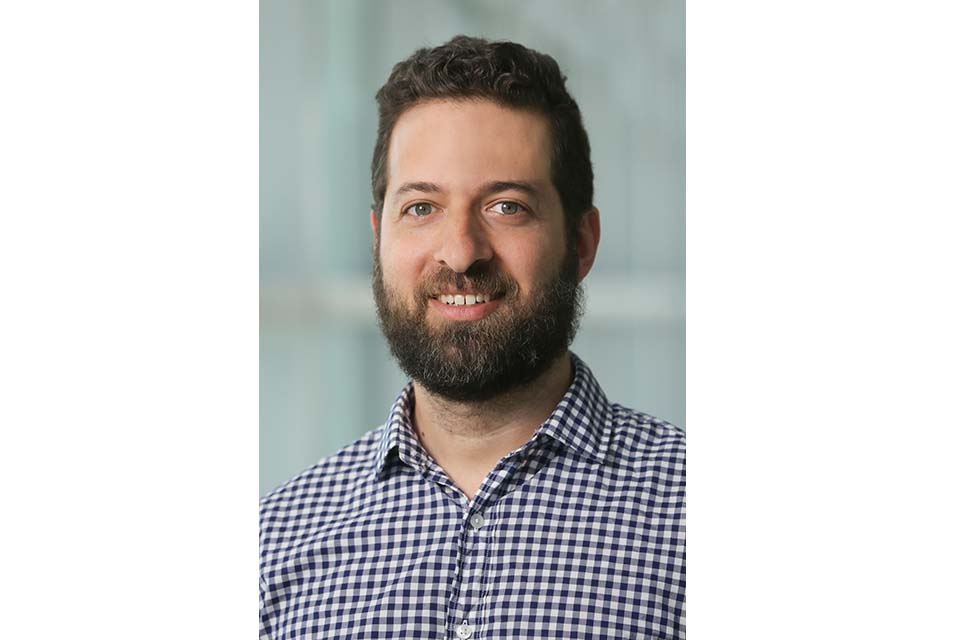A Range of Paths: An Interview with Jonathan Anjaria

January 31, 2025
Abigail Arnold | Graduate School of Arts and Sciences
Jonathan Anjaria is an Associate Professor of Anthropology at Brandeis University and the department’s current Director of Graduate Studies. He is also Faculty Director of Professional Development in the Graduate School of Arts and Sciences (GSAS). He joined GSAS to talk about his ethnographic research into urban transportation, the value of the anthropological perspective, and why professional development is so important for graduate students.
This interview has been edited for clarity.
How did you come to Brandeis?
I got my PhD at the University of California at Santa Cruz and then taught for one year at Smith College and two years at Bard College. In 2012, I came to Brandeis and have been here since.
What is your research on, and how did you become interested in this topic?
My work is on urban studies, particularly transportation. I use an ethnographic perspective, so I look at the practices of ordinary people in cities and how the day-to-day lives of people moving through the streets shape and transform cities.
This year, I published the book Mumbai on Two Wheels, which is about biking in India, specifically Mumbai. I became interested in this topic because of the increasing attention to the use of streets and roads in cities around the world. For eighty or so years, cars have been prioritized in cities, but now there’s an effort to make biking safer and more comfortable. I noticed that a lot of the discussion of this topic was focused on Europe and North America, while there’s a vibrant world of biking in Indian cities that didn’t seem to be part of this discussion. I did fieldwork looking at what people do with bicycles in Mumbai and focused on what the city is like from the perspective of people who bike.
What can we learn from this kind of research?
What I love about ethnography is that it’s a ground-up approach. If I want to understand something, I don’t begin by talking to government officials; I begin at the ground level with how people are moving through a city. So I look at, for example, what people are doing with bikes and how they incorporate them into their daily lives with work and home.
More broadly, if you’re curious about people and find what they say and do fascinating, then you’d be interested in anthropology. In a way, everyone is an anthropologist; we all observe details and norms and analyze the world around us.
What are the strengths of Brandeis’s graduate program in anthropology, and how do you like working with Brandeis graduate students?
The strength of the program is that the students have unique access to all the faculty. The expectation is that students will interact with and learn from all the faculty. It’s genuinely a close community, and graduate students get the kind of intense support they will not find at other institutions.
The anthropology graduate students at Brandeis are all incredibly intellectually curious. They approach topics with intellectual honesty and openness, and they are genuinely supportive of each other.
You have worked extensively with graduate students on professional development. Why is this so important for students, and how does GSAS help set students up for professional success?
Professional development is so important because a graduate degree is just one step in a person’s life, not the end point. I’m trying to show students that from the very beginning, you need to plan for life after graduate school. My goals are to help students understand what their various career options are, both inside and outside of academia, and to help them be deliberate in graduate school about gaining experience and skills that would prepare them to apply for jobs in a variety of fields after graduating.
When it comes to the PhD, people often misunderstand what it is designed for. When I talk to students who reach out and tell me they want to do a PhD, I ask why, and ninety percent of the time they say they want to teach. That’s great, but a PhD is set up as a research degree. This is an instance of the mismatch between career aspirations and what the PhD is that I’m trying to change. There is a job for every aspect of someone’s interests, whether they are research, teaching, writing, or something else, and I want to help people pursue all the multiple options beyond what the PhD is traditionally set up and designed for.
What’s unique about Brandeis is the kind of career preparation we provide for students and the opportunities we give them to pursue varied career paths. Very few institutions do what we do. Our Connected PhD grant provided opportunities for PhD students in the humanities, arts, and social sciences to pursue career development opportunities beyond the traditional faculty path and was featured in Inside Higher Ed and the Academic Life podcast. We also have the Career Fellows program, in which graduate students from all disciplines come together to attend professional development events and learn important skills for the career search. We host almost weekly events where we bring back alums and other people with graduate degrees who are working in varied fields. At GSAS, exploring varied career options is a constant part of life.






